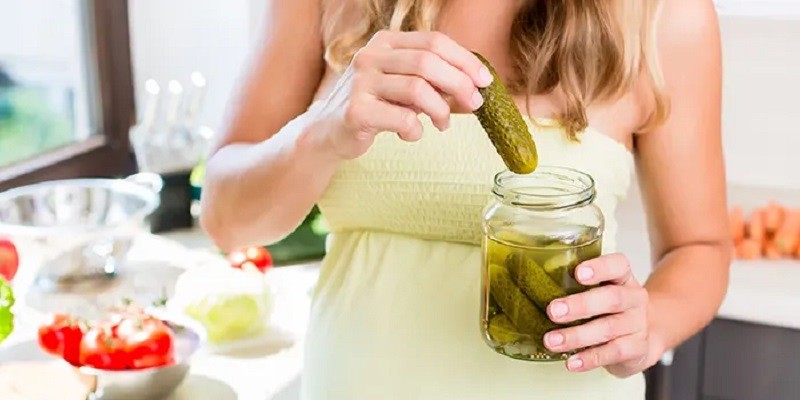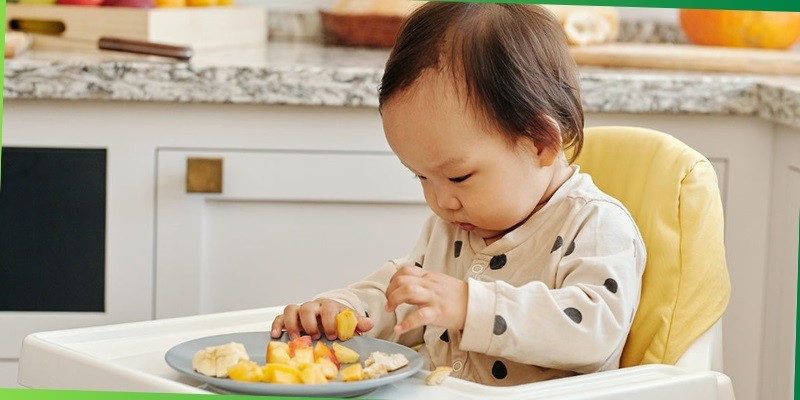Last Updated on July 27, 2024
Yes, you can eat pickled sausage while pregnant, but with caution. Store-bought pickled sausages are generally safe when consumed in moderation. However, it’s crucial to ensure they are properly cooked and stored. Avoid homemade pickled sausages due to the risk of foodborne illnesses. Always consult your healthcare provider for personalized advice regarding your diet during pregnancy.
Pregnancy often brings about unique food cravings, and pickled sausage might be one of them. While many foods are off-limits during pregnancy due to potential risks to the developing fetus, pickled sausage falls into a gray area. This article will explore the safety of consuming pickled sausage during pregnancy, its nutritional value, potential risks, and safe ways to enjoy this tangy treat. We’ll also discuss alternatives and provide expert tips to help expectant mothers make informed decisions about their diet.
What is Pickled Sausage?
Pickled sausage is a type of processed meat product that has been preserved in a vinegar-based brine solution. The sausages are typically pre-cooked before being pickled, which helps to extend their shelf life. The pickling process involves soaking the sausages in a mixture of vinegar, salt, and various spices, giving them a tangy, salty flavor. Common varieties include hot and spicy pickled sausages, garlic-flavored ones, and milder versions. While popular as a snack food, pickled sausages are often consumed straight from the jar or used as an ingredient in other dishes.
Nutritional Value of Pickled Sausage
| Nutritional Value | Details |
|---|---|
| Calories | Approximately 100-150 per sausage |
| Protein | 5-7 grams per sausage |
| Fat | 8-12 grams per sausage |
| Sodium | High (500-1000 mg per sausage) |
| Vitamins | Small amounts of B vitamins |
| Minerals | Iron, zinc, and potassium in small quantities |
Risks of Eating Pickled Sausage During Pregnancy
| Risks | Details |
|---|---|
| High sodium content | May contribute to water retention and increased blood pressure |
| Nitrates and preservatives | Could potentially harm fetal development |
| Listeria contamination | Risk of foodborne illness, especially in homemade varieties |
| Excessive calorie intake | May contribute to unhealthy weight gain during pregnancy |
| Potential for heartburn | Spicy or acidic foods can exacerbate pregnancy-related heartburn |
Safe Ways to Eating Pickled Sausage During Pregnancy
If you choose to consume pickled sausage during pregnancy, it’s important to do so safely. Opt for store-bought varieties that have been properly processed and packaged. Ensure the sausages are fully cooked and stored according to package instructions. Limit your intake to avoid excessive sodium consumption. Always check the expiration date and avoid any jars that appear damaged or have bulging lids. If you experience any discomfort or unusual symptoms after eating pickled sausage, consult your healthcare provider immediately. Moderation is key when incorporating this food into your pregnancy diet.
Alternatives to Pickled Sausage During Pregnancy
| Alternatives | Precautions |
|---|---|
| Fresh, cooked sausages | Ensure they are fully cooked to an internal temperature of 165°F (74°C) |
| Pickled vegetables | Choose low-sodium options and wash thoroughly before consuming |
| Lean protein sources | Opt for grilled chicken, fish, or tofu as healthier alternatives |
| Nuts and seeds | Consume in moderation due to high calorie content |
| Greek yogurt with herbs | Check for pasteurization and avoid unpasteurized dairy products |
Expert Tips
- “Always choose pasteurized pickled sausages to minimize the risk of listeria contamination.” (source:OB-GYN)
- “If you’re craving pickled sausage, try satisfying the urge with a small portion alongside a balanced meal rich in fruits and vegetables.” (source: Registered Dietitian)
- “Stay hydrated when consuming high-sodium foods like pickled sausage to help flush excess sodium from your system.” (source: Nutritionist)
FAQs
Can pickled sausage cause food poisoning during pregnancy?
While properly processed and stored pickled sausages are generally safe, there is a risk of food poisoning if they are contaminated with bacteria like Listeria. This risk is higher with homemade pickled sausages. To minimize the risk, choose store-bought varieties, check expiration dates, and ensure proper storage. If you experience symptoms like fever or severe abdominal pain after consumption, seek medical attention immediately.
How much pickled sausage is safe to eat during pregnancy?
There’s no specific recommended amount, as it depends on individual health factors and overall diet. However, due to the high sodium content and potential presence of preservatives, it’s best to consume pickled sausage in moderation. A general guideline might be to limit intake to one or two sausages per week, as part of a balanced diet. Always consult your healthcare provider for personalized advice.
Are there any benefits to eating pickled sausage during pregnancy?
While pickled sausages do contain some protein and B vitamins, they are not considered a particularly nutritious food for pregnancy. The potential risks often outweigh the benefits. If you’re looking for protein sources, there are healthier options available such as lean meats, fish, eggs, and legumes. These alternatives provide essential nutrients without the high sodium content and potential risks associated with pickled sausages.
Can I eat pickled sausage in my first trimester?
The first trimester is a critical period for fetal development, and it’s generally recommended to be extra cautious with food choices during this time. While properly stored and cooked pickled sausages are not strictly forbidden, it might be wise to avoid them in the first trimester due to the risk of foodborne illnesses and high sodium content. Always consult your healthcare provider for advice tailored to your specific situation.
What should I do if I’ve eaten pickled sausage and feel unwell?
If you experience symptoms such as nausea, vomiting, diarrhea, fever, or severe abdominal pain after consuming pickled sausage, contact your healthcare provider immediately. These could be signs of food poisoning or other complications. It’s important to monitor your symptoms and seek medical attention if you have any concerns, as prompt treatment is crucial for both maternal and fetal health.
Conclusion
While pickled sausage can be consumed during pregnancy with caution, it’s not the most nutritious or safest food choice for expectant mothers. The high sodium content, potential for foodborne illnesses, and presence of preservatives make it a food that should be eaten sparingly, if at all. Pregnant women should prioritize a balanced diet rich in fruits, vegetables, lean proteins, and whole grains. If you do choose to eat pickled sausage, opt for store-bought varieties, consume in moderation, and always follow food safety guidelines. As with any dietary concerns during pregnancy, it’s best to consult with your healthcare provider for personalized advice.







